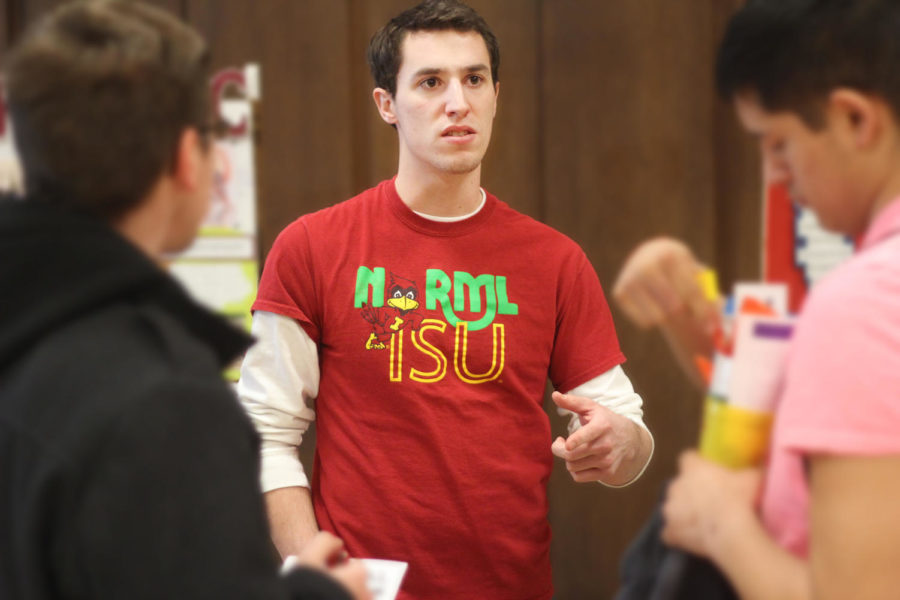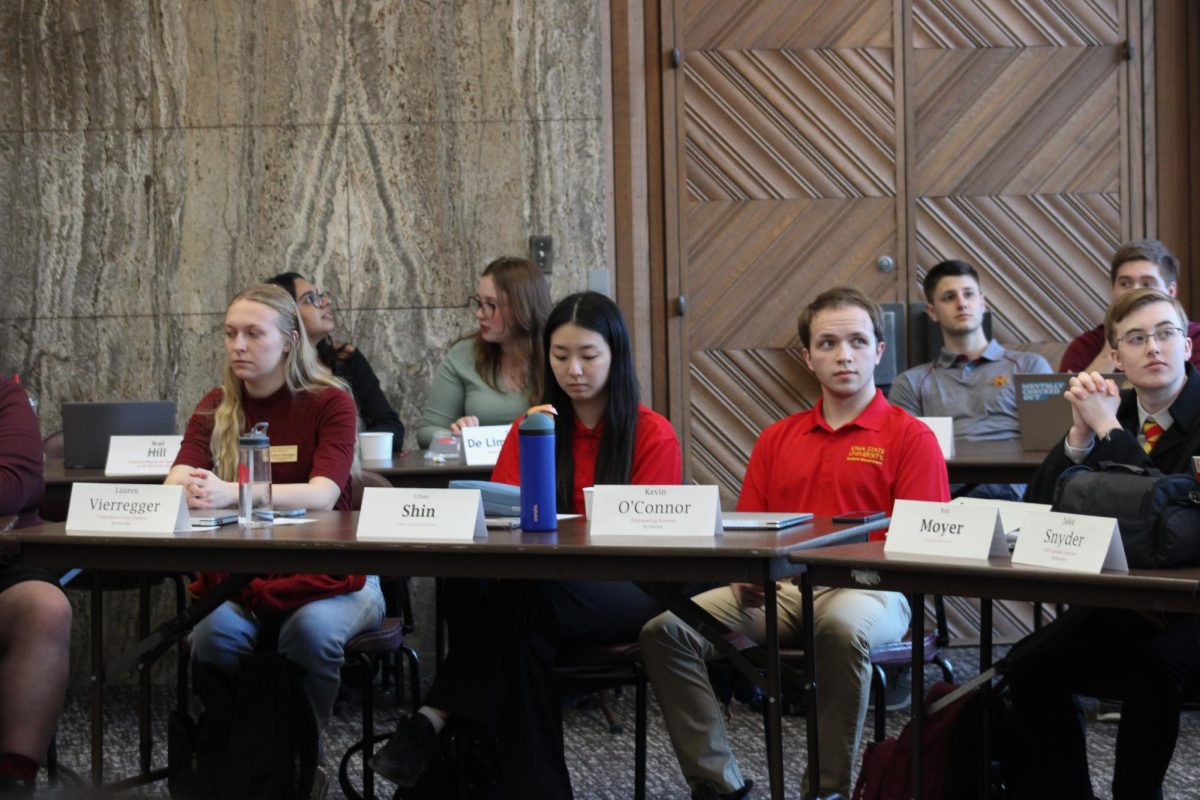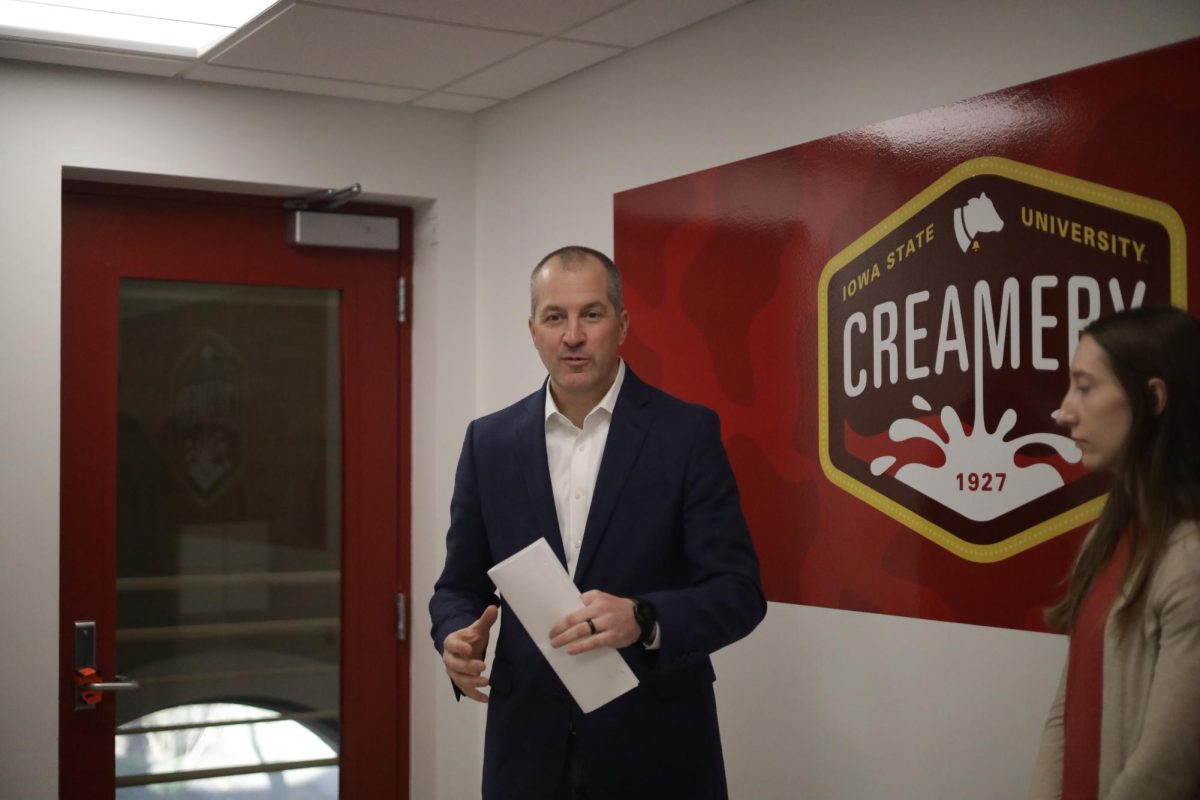Trademark v. Free Speech: NORML ISU to appeal trademark rejection for T-shirt design
January 31, 2014
Iowa State’s chapter of the National Organization for the Reform of Marijuana Laws stated it plans to appeal the rejection it received from Iowa State’s Trademark Licensing Office on June 10, 2013, a decision that arguably falls in the gray area between trademark law and free speech.
NORML ISU has run into a roadblock in the process of getting its latest T-shirt design approved by the trademark office. This design was submitted after Iowa State’s “Guidelines for University Trademark Use by Student and Campus Organizations” was revised on Jan. 16, 2013.
Iowa State’s Trademark Licensing Office was established in 1984, making the university one of the first to experiment with trademark offices. This office requires recognized student organizations to get approval before using any of the university marks, including terms such as “ISU,” “Iowa State,” “Iowa State University” and “Cyclones.” It also has authority over images of Cy and the ISU logo.
The language in the guidelines was updated last January to reflect that no designs with university marks suggesting the promotion of “dangerous, illegal or unhealthy products, actions or behaviors” and “drugs and drug paraphernalia that are illegal or unhealthful” would be approved.
NORML ISU, founded in spring 2012, is an organization aimed specifically at advocating for a change in marijuana laws.
“Speech advocating for the reform of marijuana laws is right in the heart of what the First Amendment most forcefully protects,” said Frank LoMonte, executive director of the Student Press Law Center.
Iowa State University — a public university and therefore a government agency — must recognize the First Amendment, LoMonte said.
Initially, NORML ISU had a T-shirt design approved by the university, which included an image of Cy the mascot and a cannabis leaf. A picture featuring the design was used in The Des Moines Register in November 2012, after which the university received negative public feedback.
“It kind of looked like Cy was endorsing our cause, and then that’s where it kind of all started,” said Paul Gerlich, president of NORML ISU. “From there, we were told that we could no longer produce the T-shirts, so we couldn’t make any more of them.”
On Feb. 12, 2013, after the guideline revisions, a T-shirt design that said “NORML ISU” across the front and “We are NORML” across the back was approved. The university approved another design on April 15, 2013, which read “NORML ISU Student Chapter” on the front. Both of these designs were royalty bearing, which meant they were approved for sale rather than strictly for member use.
The trademark office rejected a design June 10, 2013, that stated “NORML ISU Supports Marijuana Legalization” in all capital letters across the front with a picture of a cannabis leaf. On the back, the design read “National Organization to Reform Marijuana Laws” with a smaller cannabis leaf.
Members of NORML ISU disagreed with the decision.
“I’m very concerned because it appears that a small number of administrators have changed the rules for what can be on a student organization T-shirt, and they did so without any input or approval from either the students or the faculty,” said Eric Cooper, one of the advisers to NORML ISU, about the change to the student use guidelines.
NORML ISU currently has no pending business with the Trademark Licensing Office but is planning to appeal the latest decision. It has spent the last several months raising awareness of the student use guidelines changes; Cooper brought this to the Faculty Senate’s attention in October.
Additionally, the organization stated it would wait until the Daily published this article to proceed.
The appeal would go to Warren Madden, vice president for Business and Finance, who oversees the Trademark Office. Madden said the next step would be to appeal to the university president, after which the Board of Regents would follow.
“If there are administrative decisions that people feel are not appropriate, there’s ultimately the ability to ask the Board of Regents to review those administrative decisions,” Warren said.
Recognized student organizations are guaranteed the right to use university marks, but the question in this case has been in the application and how it appears, Warren said.
Members of NORML ISU have expressed that the organization cannot write out its full name on T-shirts because it includes the word marijuana, which administrators said is not the case.
“This didn’t have anything to do with their name,” said Leesha Zimmerman, director of trademark licensing, regarding the design.
Trademark law recognizes two related ways in which a trademark can be damaged, LoMonte said. These are dilution, which is association with something unappealing, and infringement, which suggests an affiliation that does not exist. This particular case, LoMonte said, could possibly be argued under both.
The other adviser to NORML ISU is Tom Hill, senior vice president of student affairs Tom Hill. He has supported the university’s decisions regarding these matters.
“They can do and say whatever they want to do and say,” Hill said about NORML ISU, “but they don’t have the right to use the university logo or the university name to support their position.”







